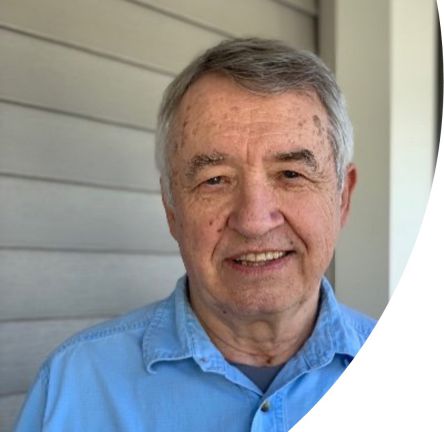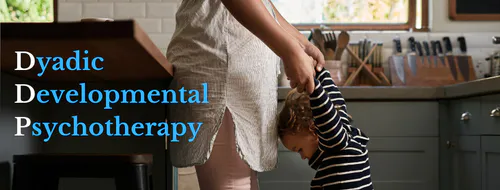DDP | In-house Training
- Friday 1 January 2027
- 12:51 am - 12:52 am
- Your location
| CPD Hrs | 28 |
|---|---|
| Includes | Handbook and certificate |
In-house training: If you have a group of 12 or more staff we can arrange DDP training at your workplace. Email us.
Dyadic Developmental Psychotherapy/ Practice (DDP) is an intervention model developed by Dan Hughes, Clinical Psychologist (U.S.A.). DDP is family-based and is focused on facilitating the child’s readiness and ability to establish a secure attachment with his/her caregivers. It is called Dyadic Developmental Practice both to focus attention on the importance of reciprocity in parenting, caregiving and therapy, and also to draw attention to the fact that abuse, neglect and trauma can seriously impact on the child’s developmental age and stage. This intervention is theoretically based on the models of attachment theory and intersubjectivity, and is consistent with the needs of children and young people who have experienced developmental trauma. It is an approach that:
- Integrates the areas of neurobiology of trauma, early child development and attachment theory, to produce a therapeutic and parenting approach that assists professionals to understand and effectively support children with trauma- attachment problems, and their families.
- Communicates playfulness, acceptance, curiosity and empathy (PACE) in order to help the child regulate their feelings (often fear, shame and anger) associated with past experiences and to create together new meanings to be integrated into the child’s life story (autobiographical narrative).
- Recognises the vital role which adoptive parents, foster carers and residential workers play in the recovery of traumatised, attachment-resistant children.
- Provides a set of principles that can support networks; inform and enrich parenting; and can support the child outside of the home eg in residential settings and at school
Participants are referred to the Healing Relational Trauma with Attachment Focused Interventions which underpins this training.
It is an approach which limits shame, promotes compassion and brings a sense of mutual support, strength and resilience.
Dan Hughes, DDP Founder

DDP Level One Training
This is an introductory 28-hour training course relevant to professionals and therapists who have experience in communicating with and working therapeutically with children and young people and their families. It is focused on families and residential care homes when children have experienced past developmental trauma and have associated attachment difficulties.
By the end of this course participants will understand:
- The impact of secure developmental attachment on neurological, affective, cognitive, and behavioural development
- How developmental trauma (abuse and neglect) create insecure and disorganised attachment patterns which impede normal development
- Principles of psychotherapy, effective communication and parenting that facilitate the development of attachment security
- Specific strategies of parenting and communication that facilitate the development of a secure attachment and help children integrate past trauma and abusive experiences
- How the caregiver’s attachment history and attachment patterns can be important factors when providing care for children who have experienced developmental trauma.
In this four-day training, principles and interventions are presented through formal discussion, case examples, videotape of therapy sessions, role-play, and hand-outs.
A MAXIMUM of 24 participants is permitted.
Audience: This training is suitable for professionals who have experience in working with children and families, or parents or caregivers, whose children have experienced developmental trauma and show attachment and relationship difficulties with their primary caregivers. This could be with adoptive parents, foster parents, kinship carers, or caregivers, such as in residential homes.
Mental Health Professionals: All mental health professionals including, but not limited to Clinical Counsellors, Psychologists, Psychotherapists, Psychiatrists, Social Workers, Nurses, Occupational Therapists, Mental Health Workers, Family Therapists, Child Protection and Disability Workers, Guidance Officers, Speech and Language Therapists, Residential Care Workers and Foster Support Workers, and all other mental health professionals looking to support young people and their parents/carers.
DDPI Worldwide: DDPI Worldwide (formerly DDPI) provides training, certification, and supervision in Dyadic Developmental Psychotherapy and Practice.
The Dyadic Developmental Psychotherapy Institute (DDPI) and its overseeing body, the Board of Directors, were established in 2009. In 2025 we became DDPI Worldwide to better reflect our global DDP community. DDPI Worldwide is a not-for-profit organisation and is based in the USA. DDPI Worldwide aims to educate, facilitate, promote and advance Dyadic Developmental Psychotherapy and Dyadic Developmental Practice, and provides a robust certification of this internationally. We provide a certification process for practitioners and therapists who are using the DDP model of intervention. Certified Practitioners in DDP have demonstrated their knowledge and competence in using the model’s core principles in their practice. DDP’s theoretical and clinical framework is now well established. However, DDPI Worldwide recognises the need for more research to increase the evidence base. Current information can be found in research, evidence base and outcomes.
We also work to make sure that those practicing DDP remain faithful to its core principles and practices. If you are not sure whether someone is recognised by DDPI Worldwide you can search for their name in Find a Practitioner, Consultant or Trainer . Only individuals that are currently certified, or in process of certification, using the DDPI Worldwide recognised certification process, are included in this website.











